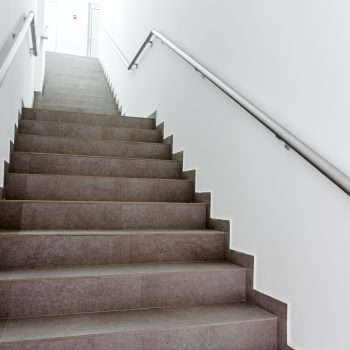
Fire Safety Regulations for Residential Buildings
Starting 30 September 2026, a pivotal change will reshape the landscape of residential construction in England. All new residential buildings reaching 18 metres or above are mandated to incorporate a second staircase. This groundbreaking decision follows meticulous consideration of the responses garnered from a consultation on the fire safety guidance of the building regulations, known as Approved Document B.
The Genesis of Change
The consultation, which unfolded between December 2022 and March 2023, attracted 285 responses, reflecting a broad spectrum of perspectives. Its primary focus was the potential integration of second staircases in new residential edifices of 18 metres and upwards, across England. Originally, the government proposed a threshold of 30 metres for this architectural inclusion. However, this suggestion met with diverse opinions; while 25% of respondents aligned with the proposal, a notable 48% opposed it.
A Closer Look at the Responses
Among the detractors, 5% advocated for the absence of any threshold, signalling a more stringent stance on fire safety measures. Meanwhile, opinions varied significantly regarding the ideal threshold, with suggestions ranging from as low as 11 metres to as high as 60 metres. Despite the contention, a consensus leaned towards the establishment of a threshold, underscoring a collective drive towards enhancing resilience and bolstering public confidence in building safety.
A Responsive Framework
Acknowledging the feedback, the government has set the wheels in motion for the adoption of the new guidance by 30 September 2026. Building applications henceforth will need to align with these updated regulations, ensuring a two-staircase design for qualifying structures. Applications that fail to meet this criterion will have a grace period of 18 months for construction commencement, providing a buffer for adaptation to these changes.
Industry Reactions
The Royal Institute of British Architects (RIBA) has warmly received this update, recognising it as a vital step forward in the pursuit of a safer built environment. Jack Pringle, the chair of RIBA’s board, lauded the initiative but also highlighted areas for further improvement, including the need for a second fire-fighting shaft and evacuation lifts, both critical for emergency operations.
Looking Ahead
This regulation marks the beginning of a broader conversation on fire safety in residential buildings. The government’s forthcoming response to other facets of the consultation, such as the proposal to install sprinklers in care homes and the revamp of the national classifications system for construction products, is anticipated. As we stand on the cusp of these transformative changes, the commitment to a safer, more resilient built environment remains unwavering, with the collective aim of safeguarding lives and enhancing public trust in the structures that define our urban landscape. If you need guidance on your next project contact the team at John Burke Associates today.

